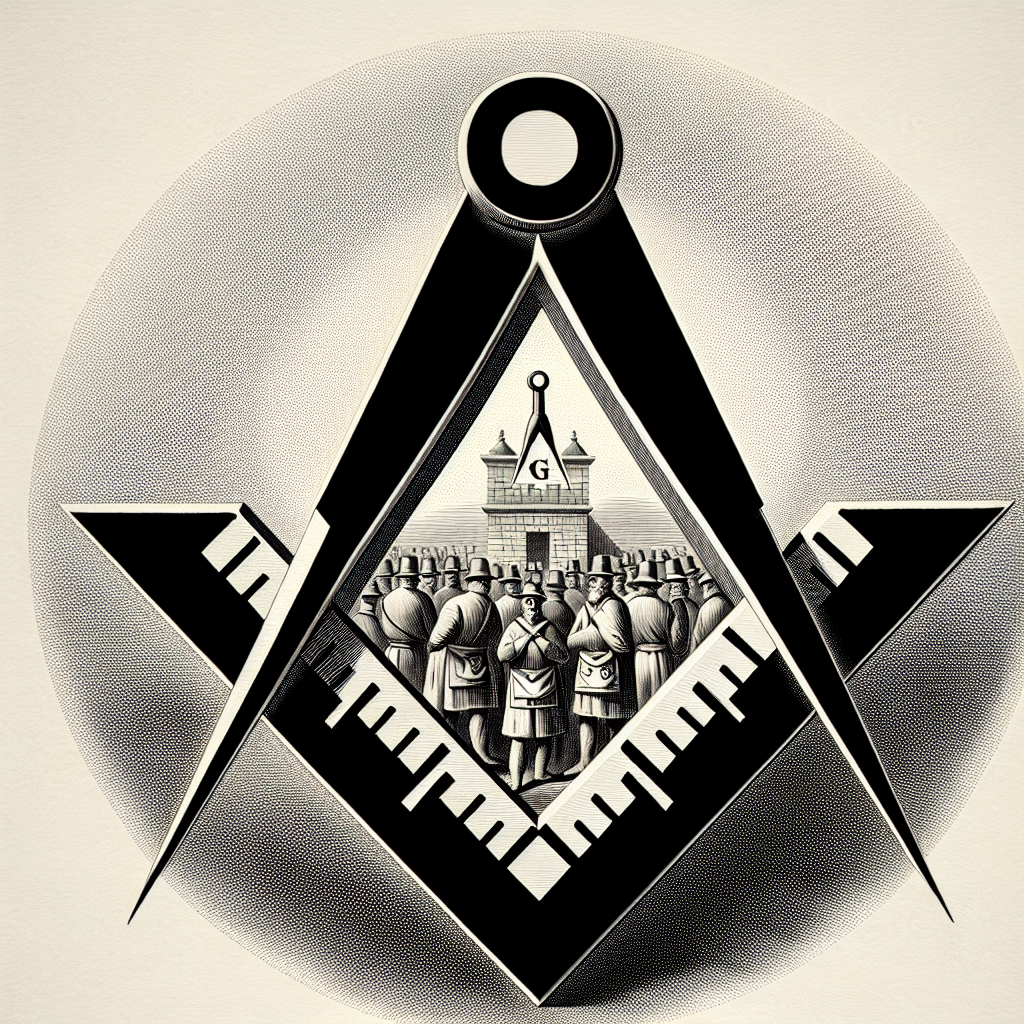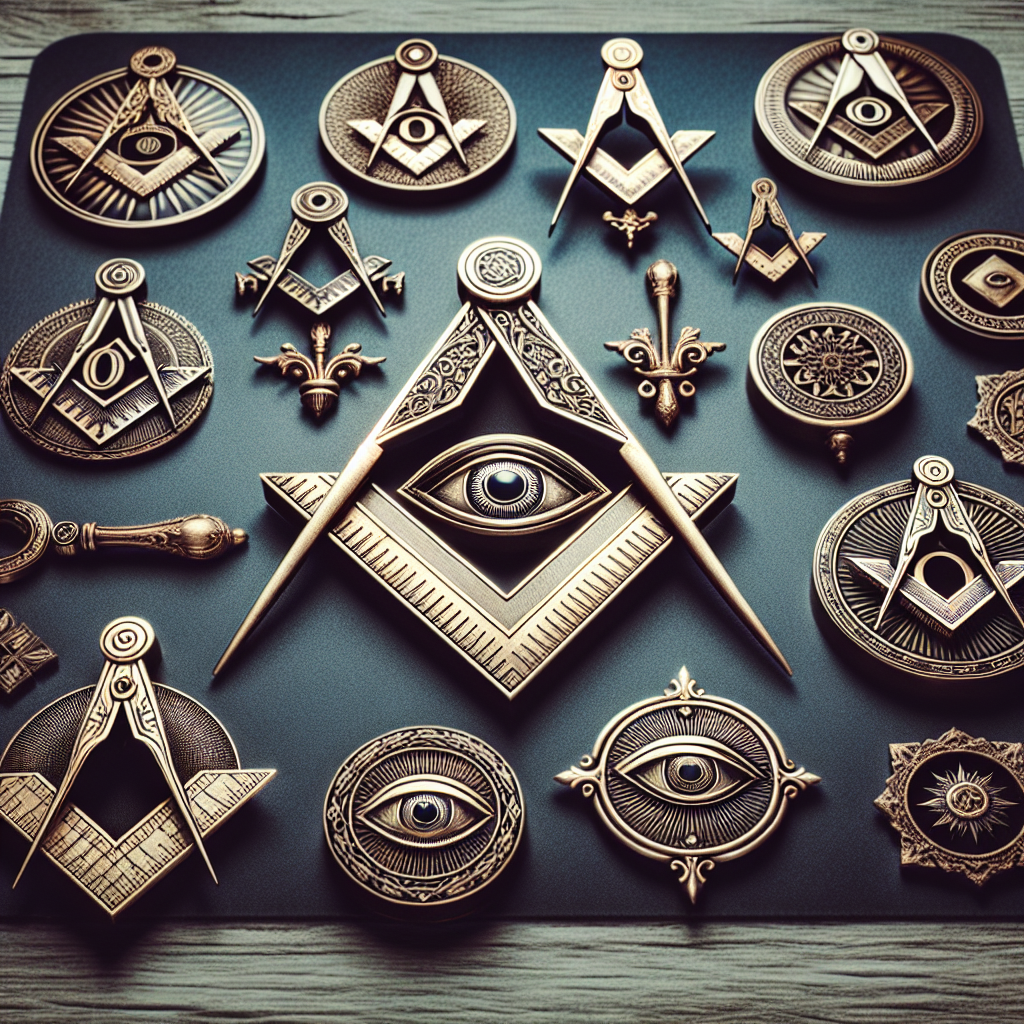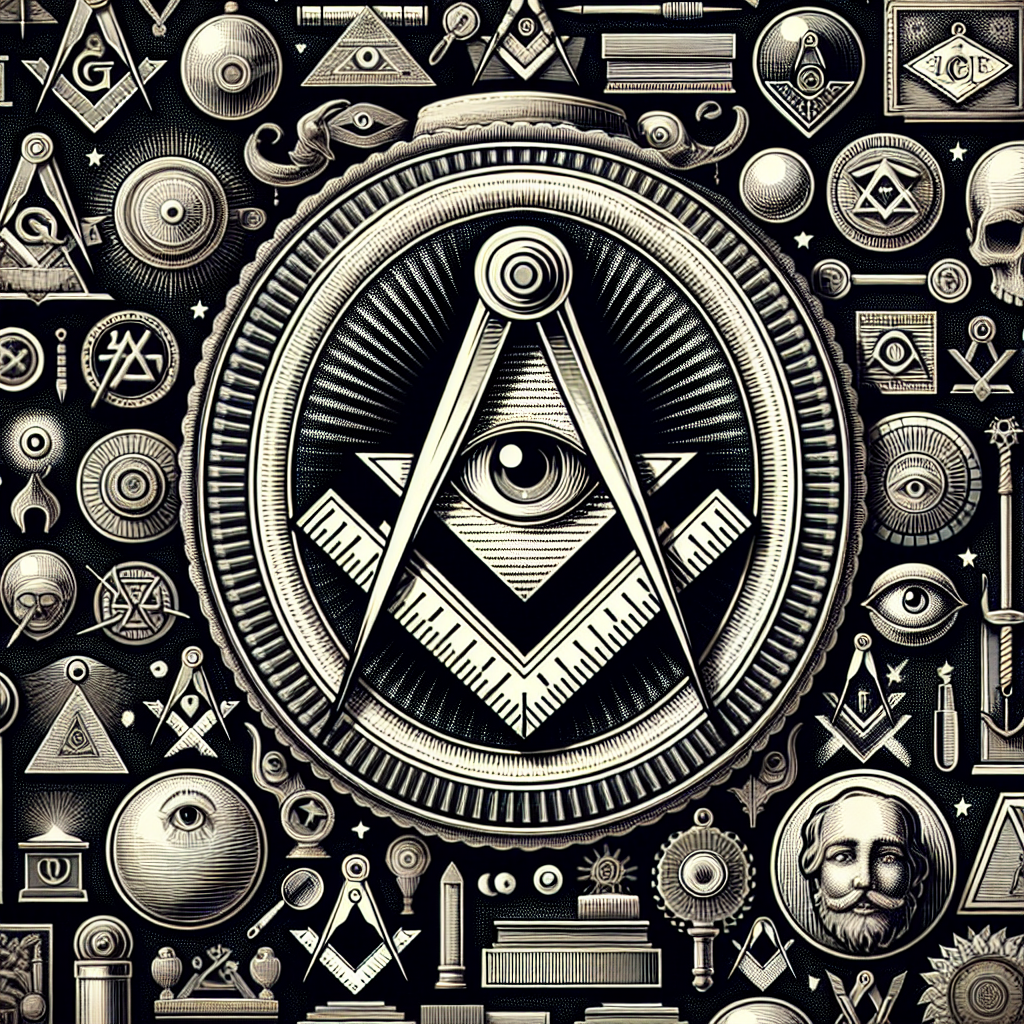
Are you curious about what Freemasons believe in? This article exists to shed light on this intriguing topic. By detailing their history, rituals, principles, and symbols, you will gain a much clearer picture. It can be surprising to uncover how misunderstood the Freemason’s beliefs often are. Knowledge is power, so let’s paint a clearer picture together as you explore the belief system of one of the oldest fraternal societies in the world. From its philosophical leanings to its charitable endeavors, Freemasonry is a rich tapestry waiting for you to explore.

Origins of Freemasonry
Ancient roots and historical context
Freemasonry, as you might already know, is a centuries-old fraternal organization that had its roots in the local fraternities of stonemasons during the Middle Ages. The exact origins are somewhat difficult to pinpoint due to lack of concrete historical documentation, yet what is certain is that the Freemasons as we know them today began to take shape in the late 16th and early 17th centuries in Scotland and England.
Foundational principles and beliefs
The foundational principles of Freemasonry are said to be Brotherly Love, Relief, and Truth. Brotherly Love refers to the practice of kindness and understanding with fellow men. Relief is about charitable actions towards those in distress. Truth represents the pursuit of knowledge and wisdom. These principles guide the actions and beliefs of Freemasons globally, regardless of the specific rituals and ceremonies of each lodge.
Evolution of Freemasonry over time
Over time, Freemasonry has evolved and adapted to changing societal norms. From a society of stonemasons, it has become a remarkable global organization with multiple degrees and different rites. Today, Freemasonry exists across the continents and consists of millions of members who still adhere to the original principles.
Freemasonry and Morality
The concept of Moral Absolutism
Freemasonry significantly upholds the principle of Moral Absolutism, emphasizing strict adherence to a moral code. This belief is that certain actions are inherently right or wrong, irrespective of cultural differences, personal opinion or extenuating circumstances.
Individual accountability and responsibility
In line with the belief in Moral Absolutism, Freemasonry teaches the importance of individual accountability and responsibility. as a Freemason, you are responsible for your own actions and are expected to act in accordance with the teachings of the fraternity at all times.
Charity and community service
Charity and community service are integral aspects of Masonic life. Freemasons are encouraged to be charitable, not just through financial support, but also in actions and deeds. Many lodges across the world have established charitable organizations that aim to better the lives of individuals in their communities.
Freemasonry and Spirituality
Spiritual, not religious
Freemasonry is spiritual in nature, not religious, although members are required to have a belief in a Supreme Being. The emphasis is not on religious dogma, but on individual spiritual growth and moral development.
Belief in a supreme being
Among the core tenets of Freemasonry is the belief in a Supreme being. However, the interpretation of this Supreme Being is left open to the individual member and is not confined to any specific religion or spiritual practice.
Practices for spiritual growth and introspection
Freemasons engage in practices for spiritual growth and introspection such as meditation, prayer, and moral contemplation. This aids in the self-improvement mission that is central to the organization’s values.
Symbols and Rituals in Freemasonry
Symbolic interpretations of Architectural tools
In Freemasonry, common architectural tools such as the square, the compass, and the level are used symbolically to teach moral, ethical, and societal lessons. These tools represent the conduct that Freemasons must strive for in their interactions with other people.
Ritualistic ceremonies and their symbolism
Freemasonry is rich in ritualistic ceremonies, which are essentially allegorical plays performed by lodge members. They contain deep symbolism derived from various sources, including the Bible, legend, and ancient mythology.
Meaning of the Square and Compass
The square and compass are the most universally identifiable symbols of Freemasonry. The square is regarded as a symbol of morality, while the compass symbolizes the boundaries within which a Freemason should interact with others.

Masonic Degrees and Progression
Overview of the three degrees
In Freemasonry, there are three symbolic degrees symbolizing different stages of the Masonic journey: Entered Apprentice, Fellowcraft, and Master Mason. Each degree is accompanied by a unique ceremony and taught lessons aimed at personal and moral development.
Significance of the Apprentice, Fellowcraft, and Master Mason degrees
The Entered Apprentice degree is the initial stage, focusing on building one’s foundation in Masonic teachings. The Fellowcraft degree, the intermediate degree, involves more in-depth lessons on the principles of Freemasonry. Finally, the Master Mason degree, the highest degree, symbolizes spiritual birth and attaining wisdom.
Mystical aspects of Masonic progression
Part of the intrigue of Freemasonry is the mystical aspects that surround Masonic progression. The three degrees are not just rankings, but they are representations of a journey towards self-improvement and achieving a higher understanding of life, morality, and the universe.
Freemasonry and Secrecy
Misconceptions about Masonic secrecy
There are many misconceptions about Masonic secrecy, often fuelled by popular culture and conspiracy theories. While Freemasonry does have secret symbols, words, and rituals, these are not meant to hide nefarious plots but to serve as teaching tools.
The role of secrecy in Masonic rituals and beliefs
Secrecy plays an important role in Masonic rituals and beliefs. The secret components serve a specific purpose – to provide members with a unique and personal journey of self-discovery and growth.
How Freemasonry views disclosure and transparency
Freemasonry values transparency and disclosure where possible. However, certain elements remain undisclosed to preserve the personal experience of discovery and introspection associated with progressing through Masonic degrees.

Women in Freemasonry
Historical views on women’s participation
Historically, women were not permitted to join mainstream Freemasonry. The early guilds of stonemasons consisted entirely of men, and this tradition carried over into Freemasonry as it developed.
Contemporary acceptance and inclusion
In recent years, the inclusion of women in Freemasonry has seen significant advancement. There are now several ‘female-only’ and ‘mixed’ Freemasonry lodges in operation worldwide.
Role of women in modern Freemasonry
Women now play significant roles within the Masonic community, serving in various capacities within the lodge and contributing to the principles of philanthropy, morality, and spiritual growth.
Freemasonry and Society
Freemasonry’s impact on social order
Freemasonry has made many contributions to societal order, emphasizing respect for others, promoting good citizenship, and imparting strong moral values to its members.
Charities and community involvement
Freemasonry is known for its extensive donations and community involvement. Many lodges have their own charitable organizations through which they execute numerous community service initiatives.
Freemasonry in the face of societal change
With societal norms, values, and needs continually changing, Freemasonry has consistently refined and updated its practices without deviating from its founding principles.

Global Differences in Freemasonry
Contrasts between British and American Freemasonry
While much of the core essence of Freemasonry remains the same globally, there are notable differences between regions. British Freemasonry known for its formality and strict adhesion to tradition, contrasts with American Freemasonry, which is often considered less formal and more community-centered.
Freemasonry in non-western countries
Freemasonry’s reach extends globally, and the fraternity is practiced in many non-western countries. However, the practices and rituals often vary, adjusted to local customs and beliefs.
Challenges and opportunities of global Freemasonry
As a global society, Freemasonry faces certain challenges, such as cultural differences, legal restrictions, and societal prejudices. Nevertheless, it also offers opportunities for shared learning and fostering global unity among its diverse membership.
Criticism and Controversy Surrounding Freemasonry
Historical allegations and conspiracy theories
Freemasonry is no stranger to criticism and controversy, fueled in part by earl calls of exclusivity, unsavory political ties, and colorful conspiracy theories. These allegations have ranged from accusations of devil worship to a secretive world government.
Masonic response to criticism
Usually, Freemasonry chooses to respond to criticism through increased transparency and attempts to educate the public about its principles, values, and activities. They aim to demystify the fraternity without compromising its traditions and rituals.
Role of Freemasonry in modern conspiracy theories
Even in contemporary times, Freemasonry sometimes finds itself at the heart of conspiracy theories. Despite such unfounded speculations, Freemasonry continues to thrive and remains committed to its centuries-old principles and objectives.













